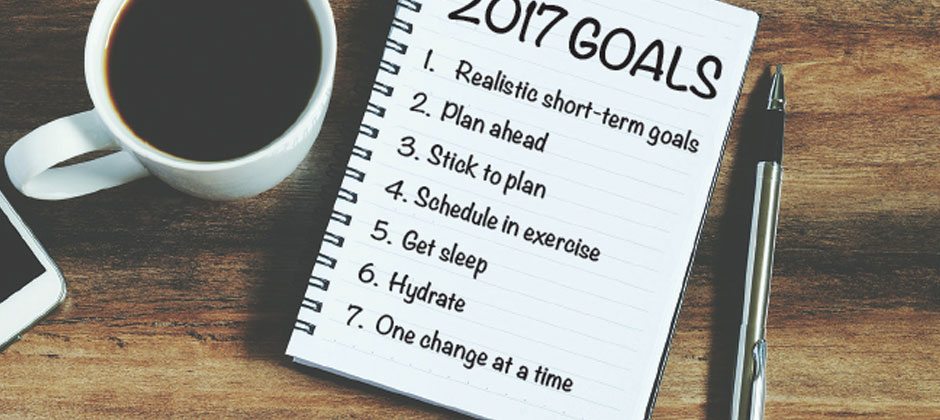
[This piece was written by Jamie Epting, MS, RD, Clinical Nutrition Manager for St. Peter’s Health Partners, and Amanda Przychodny, Public Health Intern, Nutrition Department.]
We’ve carved the turkey, stood in line at midnight to get the best deals, wrapped the presents, ate all the holiday treats our stomach would allow, and rang in the New Year. After the merriment of the holiday season, many of us turn to the New Year with a list of resolutions representing a fresh start.
But, for every person who successfully undertakes the effort to live a healthier lifestyle beginning January 1, there are countless others who find themselves back in the same old routine before the first week is even over. How do the successful ones do it?
It’s not about the perfect, on-point diet, or the latest fitness craze – it’s about just starting. It’s getting healthy foods into one’s everyday lifestyle, it’s taking the stairs rather than the elevator, and most importantly, it’s taking the time to focus on oneself. To help those New Year’s resolutions stick, remember:
Set Realistic Short Term Goals
If your ultimate goal is big, make small, short-term goals that are realistic to accomplish. This allows you to celebrate your small wins and stay motivated to reach your ultimate goal. For example, if you want to lose 30 pounds this year, set a goal to lose five pounds the first month. Celebrate the goal when you get there and then set a new one to get to where you ultimately want to be.
Plan Ahead
It is good once a week to plan your meals and shopping list for the next week.
Stick to the Plan
When you get to the store, only buy the items on your list. If you avoid items not on your list, they won’t be in your house when you may be most tempted by them.
Schedule in Exercise
Whatever your goals for physical activity, put them on your weekly planner. If you schedule that time for yourself, you are more likely to do it.
Get Adequate Sleep
It is much harder to eat right and stick to your schedule if you are tired. Plus, research shows those who get adequate sleep have an easier time losing weight.
Stay Hydrated
When you are dehydrated your body may trick you into thinking you are hungry, when what you really need is a tall glass of water.
One Change at a Time
Start with one change. Once you have it down, move onto the next so you don’t get overwhelmed. For example, start by making some healthy diet changes and, once that becomes habit, then try adding in exercise.
Change is never easy. But by making some small changes today, and building to larger ones down the road, you can realize your goals. Remember — no matter HOW you start, don’t be afraid TO start!





